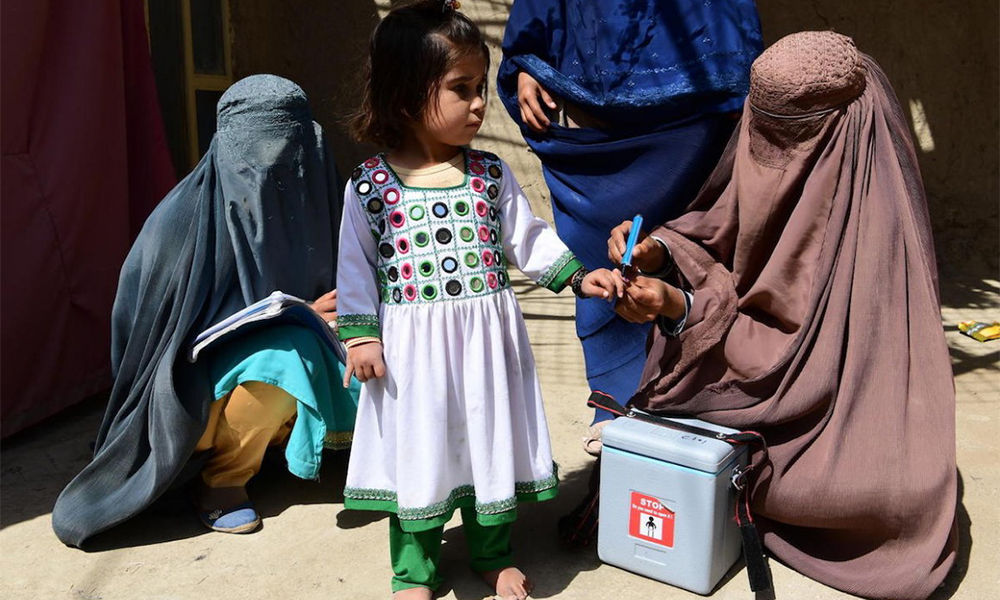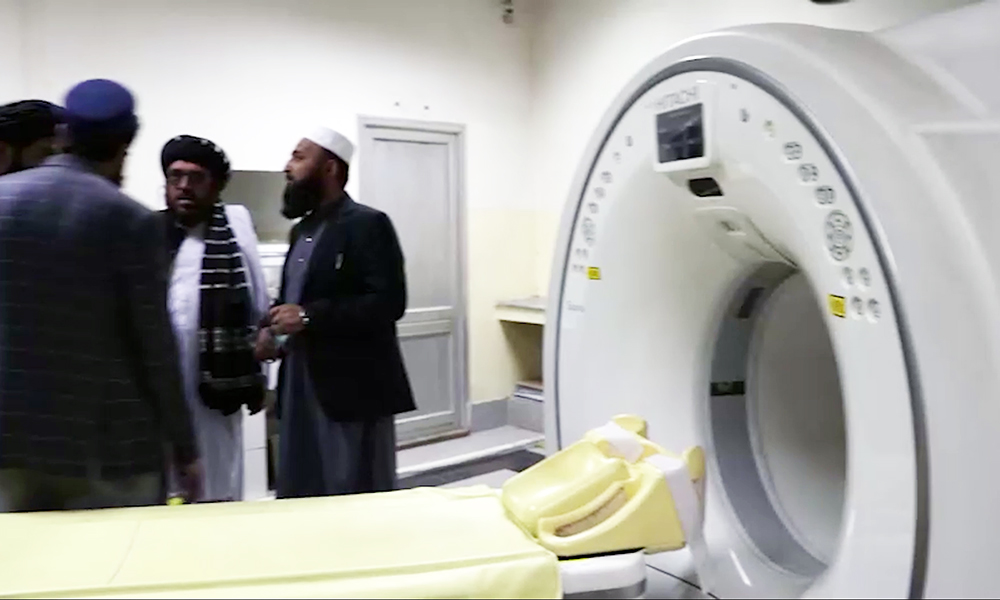Health
Polio vaccination campaign targets 5.3 million Afghan children in 16 provinces

The Ministry of Public Health of the Islamic Emirate of Afghanistan (IEA), said Sunday the first round of this year’s polio vaccination campaign is being rolled out in 16 provinces of Afghanistan and aims to inoculate 5.3 million children.
Dr. Sharafat Zaman Amar, the spokesperson of the ministry, in a message to the media, said that in this round of the campaign, 5.3 million children under the age of five will be vaccinated in 178 districts in the eastern, southern, southeastern and western parts of Afghanistan, including Kabul.
Zaman added that this campaign will start on Monday, January 23 and will continue for four days.
“In 2022, only two positive cases of polio were reported in Paktika and Kunar provinces, which shows a significant decrease compared to 56 cases in 2020 and four cases in 2021,” Zaman said.
Meanwhile, Qalandar Ebad, Minister of Public Health, added: “Afghanistan is closer to eradicating polio than ever before. We hope that by the end of 2023, with the successful implementation of the planned polio vaccination campaigns, we will see zero cases of polio in Afghanistan.”
Ebad asked parents, religious scholars and tribal elders to cooperate with vaccinators throughout the country to implement the polio vaccine.
This campaign will be carried out by the Ministry of Public Health with the financial cooperation of the World Health Organization (WHO and the United Nations Children’s Fund (UNICEF) in parts of Afghanistan.
According to the Ministry of Public Health, during the last year, nine rounds of nationwide and sub-regional polio vaccine implementation campaigns were launched in Afghanistan, which had a good result in controlling the circulation of the polio virus.
This comes after the World Health Organization announced the ongoing efforts to eradicate polio in Afghanistan and said that overcoming polio in this country would be a global victory.
According to this organization, as long as polio exists in one place, this disease will remain a threat everywhere.
Health
Azerbaijan urged to help improve capacity of Afghan health workers

Acting Minister of Public Health Qalandar Ebad, in a meeting with Azerbaijan’s ambassador, Ilham Mohammadov, called for the country’s assistance in improving the capacity of Afghanistan’s health workers.
The two sides also discussed cooperation in the health sector, capacity building of Afghan health workers, and Azerbaijan’s role in the health sector and other issues, according to a statement released by the Public Health Ministry.
Azerbaijan’s envoy said that his country seeks to cooperate with Afghanistan in a sustainable manner in the field of health.
In other news, the foundation stone for the construction of oxygen production facility was laid at the Indira Gandhi children hospital in Kabul.
Officials of the Ministry of Public Health said that the facility will be built with the financial and technical assistance of the World Health Organization, and with the capacity to produce 200 cylinders of oxygen daily to meet not only the needs of the hospital, but also other health facilities.
Health
Balkh health officials report sharp increase in number of cancer patients

Balkh Public Health Department officials say there has been a significant increase in the number of patients with cancer in the province.
“In 1401, about 2,613 OPD (out patient department) cases were registered with us. In 1402, these figures were 4,912 cases,” said Ehsanullah Kaliwal, the head of the oncology department at Balkh Regional Hospital.
Some doctors say genetic factors, environmental pollution, arbitrary use of medicines, and excessive consumption of meat were reasons for the sharp increase.
One doctor said cancer was also hereditry.
However, a large percentage of cancer patients in Balkh have stomach cancer. Many of them have appealed for the government to improve treatment facilities.
According to health officials, in the first month of this solar year (April), 423 cancer patients visited this hospital for treatment.
Health
Majority of Afghans with mental disorders are women: officials

Based on last year’s data, 52 percent of people with mental disorders in Afghanistan are women, the Ministry of Public Health said.
However, after the Islamic Emirate took over the country and with the improvement of nationwide security and the provision of better health services, mental disorders have decreased, the ministry said.
“Overall, the mental security of men and women in Afghanistan is not ensured and their mental security is disturbed. According to the figures shared with us, in 2023, 52 percent of the visitors for mental disorders were women,” said Sharaft Zaman Amarkhil, the spokesperson of the Ministry of Public Health.
“Generally speaking, we can say that compared to the past, the instances of mental illnesses have decreased,” he added.
People suffering mental disorders mostly refuse to share their problem, willingly or unwillingly.
“There are many problems at home; We are poor. I finished school, but didn’t find any job,” Ansar, a mentally ill person, said.
According to the World Health Organization (WHO), half of Afghanistan’s population suffers from mental distress.
Factors such as unemployment, poverty, domestic violence, ban on girls’ and women’s education and work, and drugs are said to be key contributors to mental distress.
-

 Business4 days ago
Business4 days agoCommerce ministry inks 10 MoUs to boost development of small and medium-sized businesses
-

 Sport4 days ago
Sport4 days agoRashid Khan threatens BBL pullout after Australia postpones Afghanistan T20I series
-

 Latest News4 days ago
Latest News4 days agoOver 6,000 acres of land cleared of poppies in Badakhshan
-

 Health5 days ago
Health5 days agoBalkh health officials report sharp increase in number of cancer patients
-

 Latest News4 days ago
Latest News4 days agoMSF ‘deeply concerned’ over new phase of deportations of Afghans from Pakistan
-

 Sport3 days ago
Sport3 days agoAfghanistan Champions League kicks off with grand opening ceremony
-

 Latest News2 days ago
Latest News2 days agoPakistan’s frontiers minister stresses ‘dignified’ return of Afghan refugees
-

 Regional3 days ago
Regional3 days agoIran’s foreign minister downplays drone attack, says Tehran investigating
























